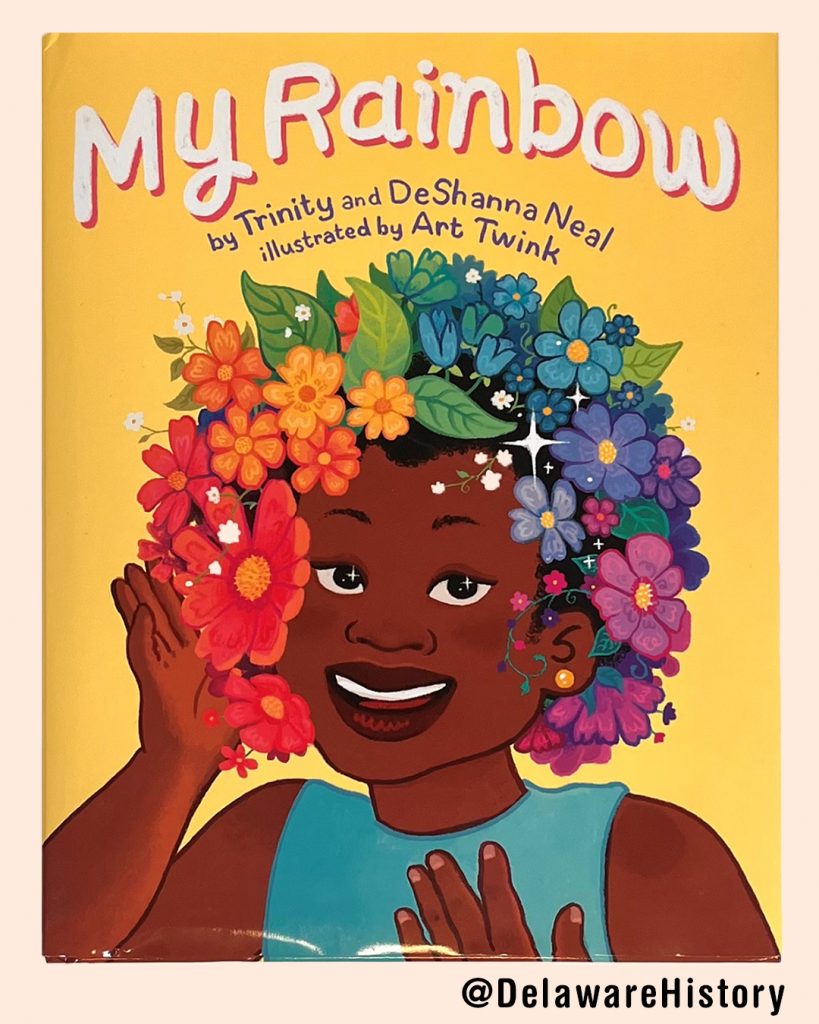Women to know in Delaware history
Throughout history, women have played a vital role in shaping every aspect of American life, politics and society, and each March we celebrate that history and those accomplishments during National Women’s History Month. But who were some of Delaware’s notable women throughout history? We asked our staff to share some of their favorite female inspirations to share with you below, but this list does not include all of the remarkable women who have left their mark on Delaware history.
Mary Ann Shadd Cary (1823-1893) was born in Wilmington, Delaware, to formerly enslaved parents and dedicated her life to abolition. According to the National Women’s Hall of Fame, she was the first Black woman in North America to edit a weekly newspaper and later became a teacher, establishing and teaching in schools for Black students in Wilmington, Pennsylvania, New York, New Jersey and Canada. She was also the first woman to speak at a national African-American convention. Learn more about Shadd Cary in this article by The News Journal/Delaware Online.
Edwina Kruse (1848-1930) was the first Black principal at Wilmington’s Howard High School, which at the time was the only four-year high school for African Americans in Delaware. She was one of several Black women who founded the Wilmington branch of the NAACP in 1912. Kruse also founded the Sarah Ann White Home for the aged in Wilmington, according to the Jane and Littleton Mitchell Center for African American Heritage. Learn more about Kruse in this YouTube video.
Annie Jump Cannon (1863-1941) was born in Dover and came to be known as America’s “foremost woman astronomer,” who gained international recognition for developing a system of classifying stars known as the Harvard spectral classification system. She attended Wellesley College to study astronomy and physics, and pursued advanced science degrees while also serving as an active member of the National Woman’s Party for women’s suffrage, among other accomplishments, according to the Delaware Women’s Hall of Fame. Cannon also is featured on the state $1 coin.
Blanche Williams Stubbs (1872-1952) was a suffragist and activist originally from Wisconsin who graduated from Howard University in Washington, D.C., in 1892 before settling in Wilmington, Delaware. She taught at Howard High School for several years and later became vice president of the Wilmington NAACP and active in local organizations supporting the African American community and youth. She, along with her husband and former teachers from Howard High School, founded the Garrett Settlement House, named for the city’s famed abolitionist leader, Thomas Garrett, in 1912, according to the University of Delaware. Learn more about Stubbs in this YouTube video.
Alice Dunbar-Nelson (1873-1935) was a notable poet, educator and activist who was born in New Orleans and later moved to Wilmington, Delaware. She taught English and drama at Wilmington’s Howard High School and also for several years was a teacher and administrator of summer classes for the State College for Colored Students, now known as Delaware State University.
Hilda Andrea Davis (1905-2001) was an accomplished academic and educator who was the first Black woman to hold a full-time faculty position at the University of Delaware. Originally from Washington, D.C., Davis moved to Delaware in 1959 to work at the Governor Bacon Health Center, according to the Delaware Women’s Hall of Fame.
Sarah Bulah and Shirley Bulah Stamps were a mother and daughter from Hockessin, Delaware, who fought for Shirley’s right to ride a school bus, becoming part of the 1954 Supreme Court case that ended school segregation. They worked with notable Black Delaware civil rights attorney Louis Redding on the case, when Shirley was just 8 years old, on the Bulah v. Gebhart case, which later became part of the U.S. Supreme Court decision in the Brown v. Board of Education case.
Barbara Gittings (1932-2007) was a Delaware native and prominent LGBTQ+ rights activist who in 1958 founded the New York chapter of the Daughters of Bilitis, the country’s first lesbian organization. Her advocacy also led to the American Psychiatric Association dropping homosexuality as a mental illness. Learn more about Gittings in this WHYY story, and stay tuned for more to come from the Division’s “Delaware’s LGBTQ+ Community: A Research & Digital Engagement Project.”

DeShanna Neal and daughter Trinity Neal have become modern-day advocates for Delaware’s transgender community, working tirelessly to ultimately have Trinity Neal become the first minor in Delaware to have Medicaid cover her gender-affirming care, setting a precedent for other low-income transgender children. The mother-daughter duo have donated memorabilia to the Division’s historic collections and you can learn more about their journey in this story from Delaware Today.
State Senator Sarah McBride (1990-) became the first openly transgender person elected to a state senate in the country when the Wilmington native won her election in Delaware in 2020. She was also the first openly transgender person to address a major party convention when she spoke at the 2016 Democratic National Convention, according to the National Women’s History Museum. During her two years as an elected official, she has also played a vital role in securing paid family leave for Delawareans and as an ongoing LGBTQ+ rights advocate.
Learn about more notable Delaware women in USA Today’s “Women of the Century” feature written in 2020 in celebration of the 100th anniversary of the women’s suffrage movement. For even more, check out the Hall of Fame of Delaware Women, which has been honoring Delaware’s contributions to the suffrage movement since 1981.


